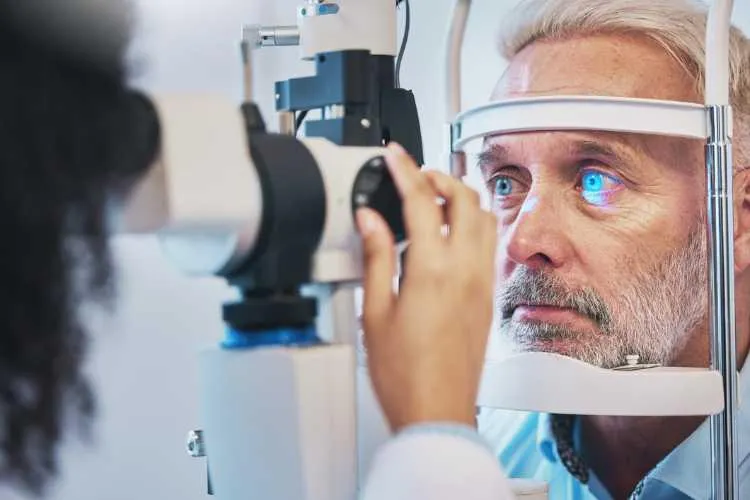

VISION HEALTH ARTICLES

Vision Loss Is Preventable with Regular Checkups
A recent study showed that 38 percent of Americans don’t have an eye doctor, 63 percent don’t have vision care insurance, and 58 percent report blurred vision, nearsightedness, and other vision issues. Additionally, one in ten Americans have not been to the eye doctor in six or more years.
These statistics are concerning because the early treatment of disease is more likely to prevent or slow vision loss and blindness. The following are the most common eye diseases where early diagnosis and treatment could improve quality of life and/or prevent vision loss:
Cataracts
Cataracts cause blurred and darkening vision. Left untreated, cataracts will cause eventual blindness. Effective treatment of cataracts will prevent blindness and restore clear vision.
Glaucoma
Glaucoma is caused by damage to the nerve connecting the eye to the brain. While it is a progressive disease, there are many treatments available to successfully slow progression and prevent blindness. It is crucial to diagnose and treat glaucoma early to prevent vision loss.
Refractive Errors
Refractive errors, such as nearsightedness, farsightedness, astigmatism, and presbyopia, can lead to vision impairment. Symptoms include squinting, headaches, blurred vision, and problems focusing or seeing at a distance. These symptoms are easily managed with glasses or contact lenses.
Optometry has made significant strides in recent years in the variety and effectiveness of treatment options in preventing vision loss and blindness. The first step is to find an optometrist who meets your needs and plan annual vision checkups. Vision loss can happen gradually or quickly, but either way, regular care and preventative treatment helps ensure that blindness is not the eventual outcome.
Family Healthcare now offers affordable vision care services in St George, Utah. Whether you visit Dr. Dallin Wilson at Family Healthcare or another optometrist, it’s important that you plan for regular vision checks just as you do for oral and medical wellness checks, especially if you are experiencing any of the symptoms described in this article.

